All the evidence heard in the Covid inquiry so far
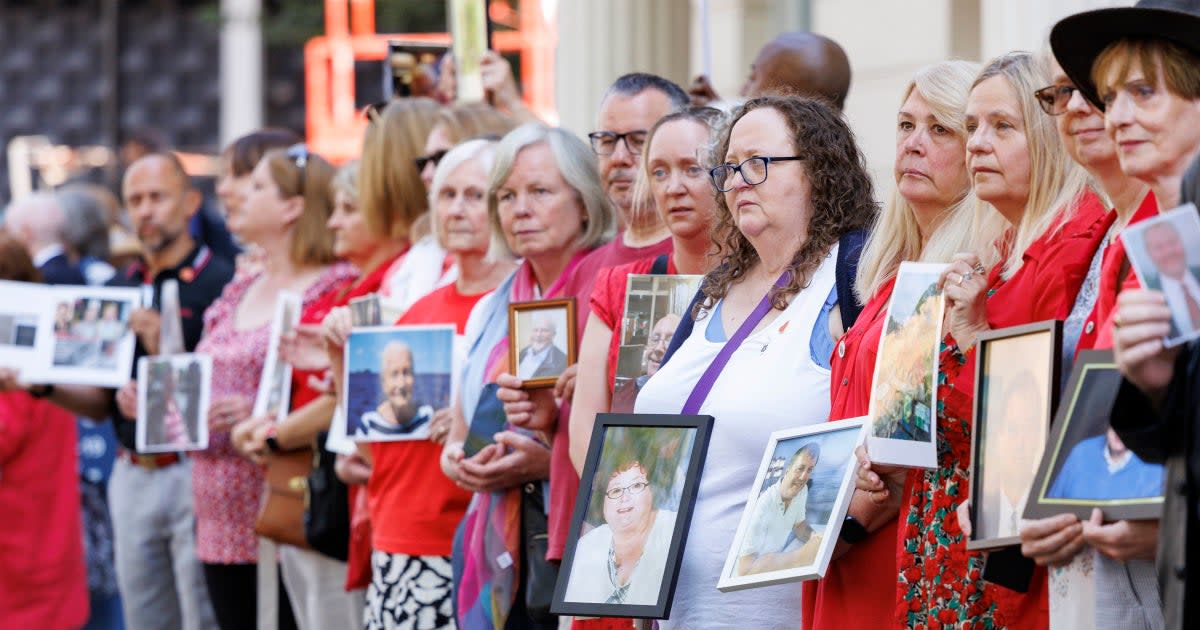
Britain “may not have been very well prepared at all” for Covid-19, the official inquiry into the government’s handling of the pandemic has heard.
Hugo Keith KC, lead counsel for the inquiry, said in his opening statement on Tuesday that the nation was “taken by surprise” by “significant aspects” of the disease that has been recorded on 226,977 death certificates.
Baroness Heather Hallett opened the inquiry, saying the British people deserve a “thorough investigation” into government planning for the pandemic and the events that unfolding during it.
Lady Hallett accepted that it would be a “huge task” for her team to meet its “ambitious timetable”, with the probe expected to run until summer 2026.
The inquiry has been divided into four modules: resilience and preparedness, core UK decision-making and political governance, impact of the pandemic on healthcare and vaccines and therapeutics.
Below are some of the key moments from day one of the inquiry.
Did you lose loved ones to Covid during the pandemic? If so email matt.mathers@independent.co.uk
Day one - 13 June
Chair pays tribute to people who lost their lives
Lady Hallet paid tribute to bereaved family members as she opened the first hearing.
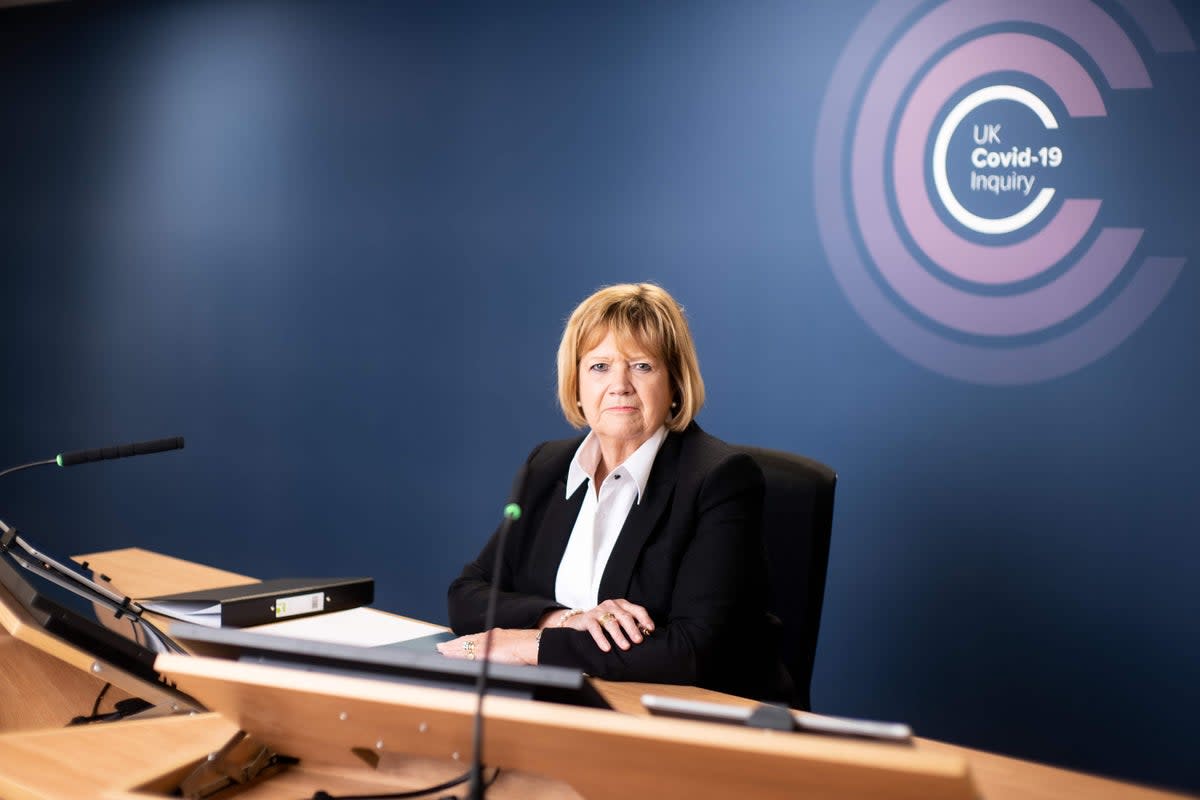
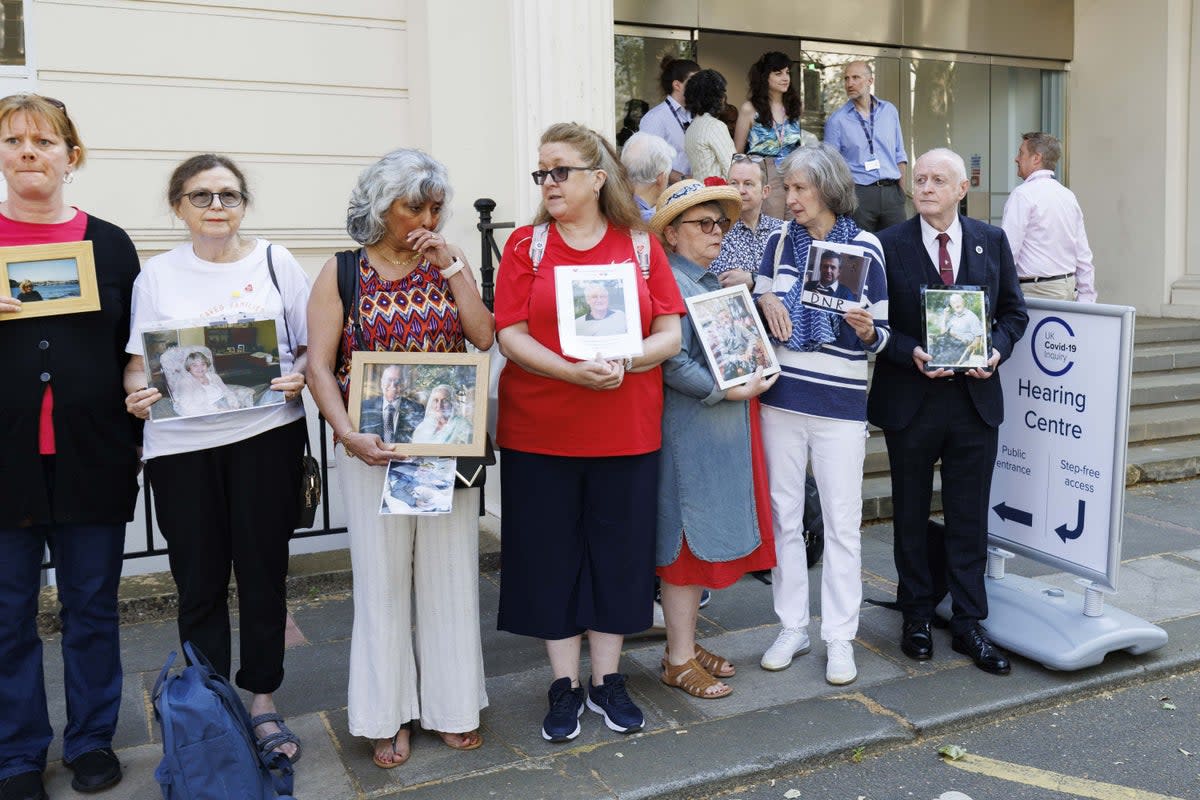
At the start of the inquiry, videos were played showing people telling their stories and describing how their family members had died alone or had been rushed to hospital.
One woman cried as she told how her father had died but then, just a few days later, her sister also died. She said she suffered guilt over the way they had died. Another woman said she had "lost everything", while others described suffering anxiety.
UK may not have been prepared for pandemic
The UK may not have been "very well prepared at all" to deal with the coronavirus pandemic, the official inquiry’s lead lawyer said.
Lead counsel Hugo Keith KC questioned whether the nation was equipped to offer substantial protection to the public as leaders had promised when the Department of Health and Social Care, along with the three devolved governments of Scotland, Wales and Northern Ireland, published a Covid-19 action plan.
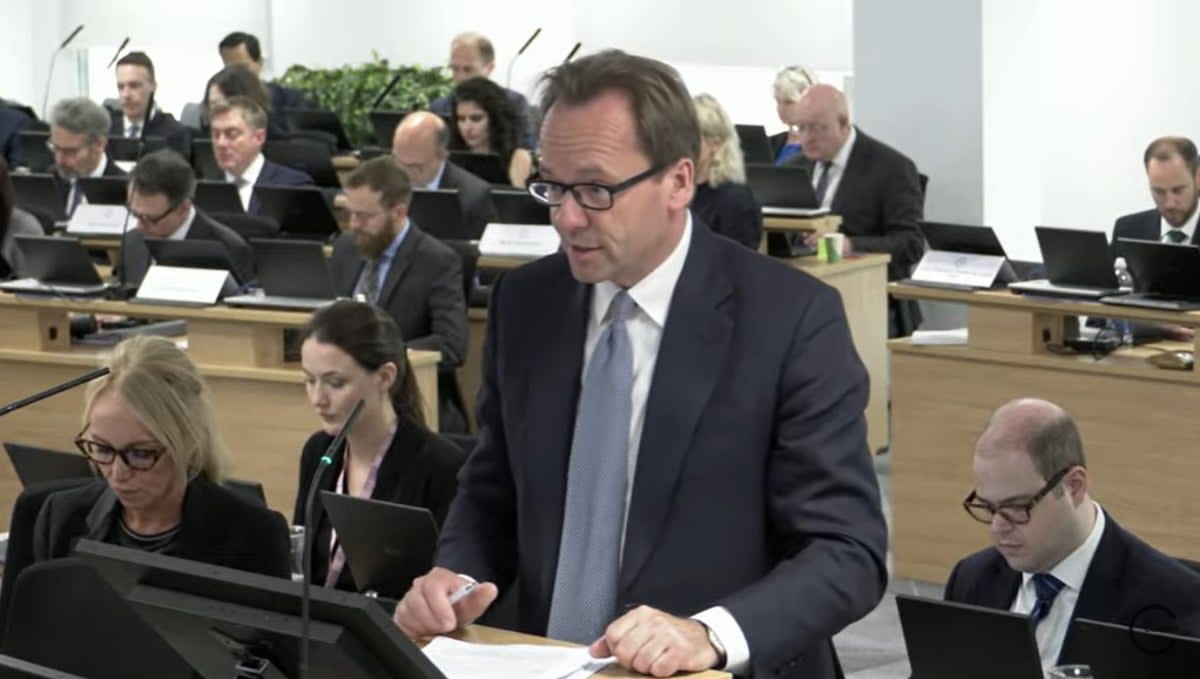
"The plan stated that the United Kingdom was well prepared to respond in a way that offered substantial protection to the public. Whether that was actually the case will be examined in module one.
"Even at this stage before hearing the evidence it is apparent that we might not have been very well prepared at all."
Very little thought given to impact of lockdowns
Mr Keith said there was “very little thought” given to the impact lockdowns could have on the country.
"Very little thought was given to how, if it proved to be necessary, how something as complex, difficult and damaging as a national lockdown could be put in place at all.
"Equally, there appears to have been a failure to think through the potentially massive impact on education and on the economy in trying to control a runaway virus in this way."
Mr Keith also questioned whether past experiences could have led to complacency in planning, adding: "Did our experience of the 2009 swine flu lead to concerns about overreacting?"
Brexit could have ‘crowded out’ planning for pandemic
Hugo Keith KC suggested to the Covid inquiry that preparing for Brexit "crowded out and prevented" the work that was needed to improve pandemic preparedness.
He said: "The pandemic struck the United Kingdom just as it was leaving the European Union. That departure required an enormous amount of planning and preparation, particularly to address what were likely to be the severe consequences of a no-deal exit on food and medicine supplies, travel and transport, business borders and so on.
"It is clear that such planning, from 2018 onwards, crowded out and prevented some or perhaps a majority of the improvements that central government itself understood were required to be made to resilience planning and preparedness.”
Evidence likely to show ‘chaos’ in government
Evidence is likely to show a lack of responsibility in government and "chaos" which led to a slow reaction to a pandemic where "lost time is measured in lost lives", the Covid inquiry has been told.
Pete Weatherby KC, of Covid Bereaved Families for Justice UK, said: "The families expect the evidence will show a lack of responsibility in Government for civil emergency preparedness, with little or no ministerial leadership and the chaos of committees which led to poor planning and ultimately a reactive rather than proactive response to the virus.
"We anticipate the evidence will show that the most fundamental consequence of this was a slow reaction. And with a pandemic, time is of the essence and lost time is measured in lost lives."
NHS England ‘failed to prepare PPE stocks’
Failures of planning and preparation for personal protective equipment (PPE) for healthcare staff "led to the ludicrous spectacle of doctors making aprons from bin liners" during the pandemic.
Brian Stanton, lawyer for the British Medical Association, listed the ways in which medical workers had to improvise due to the lack of adequate protective clothing.
He said: "Frontline staff often had to go without PPE, buy their own, use homemade, donated or expired items, and reuse single-use items. Staff also had to use items that were out of date, with multiple expired stickers visibly layered on top of each other.
"Many felt pressured to work without adequate protection, with consequences for their mental and physical health."
Politicians presided over ‘chaos’
The barrister representing bereaved families in Scotland told the inquiry that political leaders "stand accused of presiding over a carousel of chaos".
Claire Mitchell KC demanded answers as to whether politicians in the UK and devolved administrations could put aside political differences and act in the public interest, as well as justifications for delays in lockdown and the Eat Out to Help Out scheme.
She told the inquiry "at best, those in charge sought to prepare for the wrong pandemic" and the UK was "woefully under-prepared for the virus that swept our shores".
The inquiry is covering the whole of the UK, although Scotland will hold its own probe.
David Cameron gives evidence - 18 June
David Cameron conceded it was a “mistake” for government not to consider different types of disease when planning for future pandemics but denied that his austerity policies damaged the UK’s ability to respond to the pandemic.
The former prime minister said that the primary focus was preparing for a flu pandemic, adding “groupthink” had inhibited officials’ ability to think about other respiratory infections.
Giving evidence to the inquiry, he said that “much more time” was spent on the “dangers” of flu pandemic “rather than on potential pandemics of other, more respiratory diseases, like Covid turned out to be.”
"This is so important - so many consequences followed from that,” he added.
Mr Cameron defended his record on risk planning, pointing to his decision to set up the National Security Council, a cabinet committee which considers matters relating to national security, foreign policy, defence, trade, international relations, development, resilience and resource security.
He added, however, that there was "always a danger of group think - perhaps that is what is happening here".
"I think the failing was not to ask more questions about asymptomatic transmission."
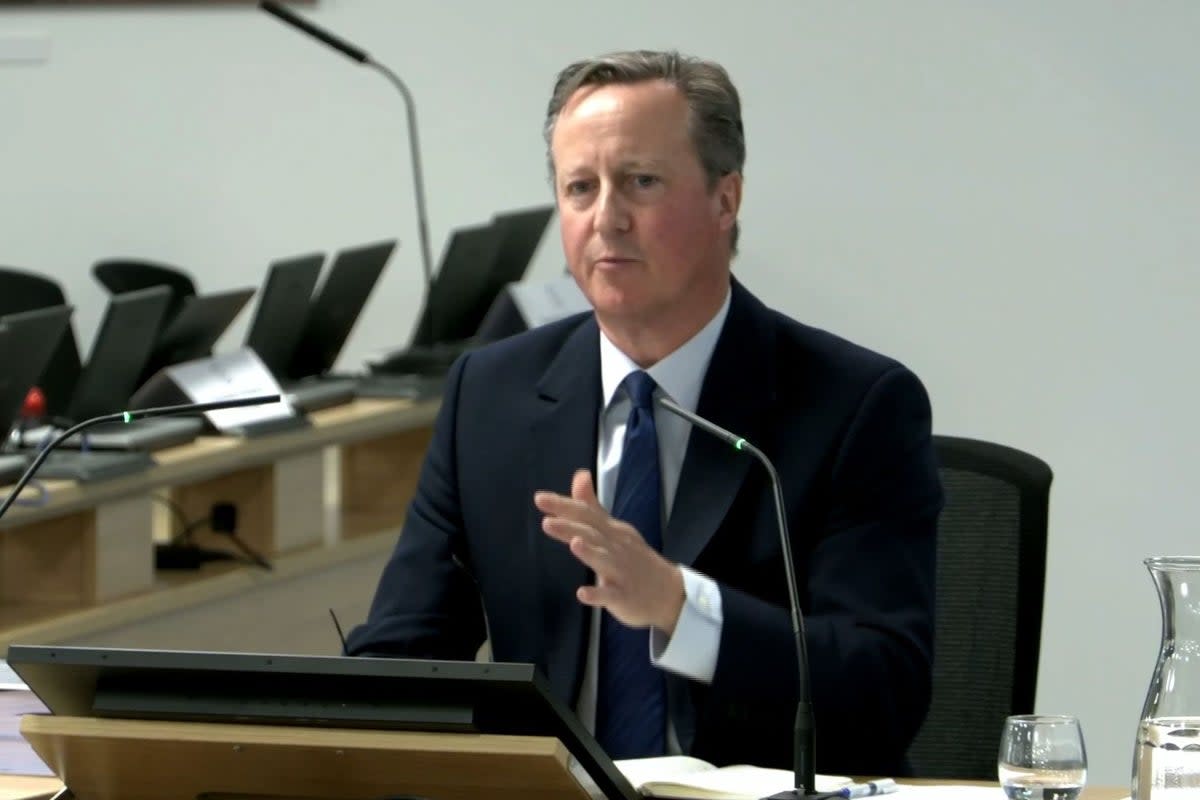
Referring to austerity, Mr Cameron said “I think it was the right economic policy.”
And Mr Cameron added that the time spent focusing on flu during contingency planning was “the thing I keep coming back to” when considering the “horrors of the Covid pandemic”.
“I think it was a mistake not to look more at the range of different types of pandemic,” Mr Cameron said, giving evidence under oath.
He added: “Much more time was spent on pandemic flu and the dangers of pandemic flu rather than on potential pandemics of other, more respiratory diseases, like Covid turned out to be.
“And you know, I think this is so important because so many consequences follow from that.”
He said he had been “wrestling with” the issue, adding: “But that’s where I keep coming back to is, so much time was spent on a pandemic influenza and that was seen as the greatest danger – and we had very bad years for flu so it is a big danger..
“But why wasn’t more time and more questions asked about what turned out to be the pandemic that we faced?
“It’s very hard to answer why that’s the case. And I’m sure this public inquiry is going to spend a lot of time on that.”
He was questioned on his own warning back in 2015 that the Ebola outbreak was a “wake-up call” to the emergence of a “more aggressive and more difficult to contain” virus.
He said that his government did look at pandemics other than flu, such as Mers and Sars.
“So I think that wasn’t a failing, I think the failing was not to ask more questions about asymptomatic transmission, highly infectious… what turned out to be the pandemic we had,” he added.
Sir Oliver Letwin gives evidence - 19 June
Failing to appoint a senior minister with sole responsibility over planning for pandemics and other threats has been an "error", a former minister has said.
Sir Oliver Letwin told the official UK coronavirus inquiry on Tuesday that it was a "lasting regret" that he had not focused more on pandemics while in the Cabinet Office.
The minister, who has described himself as David Cameron’s "Mr Fix It", said resilience only formed a "relatively small part" of his role despite it being in his brief between 2011 and 2016.
Instead he said he spent a lot of time on "endless discussions" with Liberal Democrat colleagues in coalition with the Tories in the "rather wide-ranging and unusual role".
Sir Oliver said: "Actually there really ought to be a minister solely devoted to resilience at a senior level."
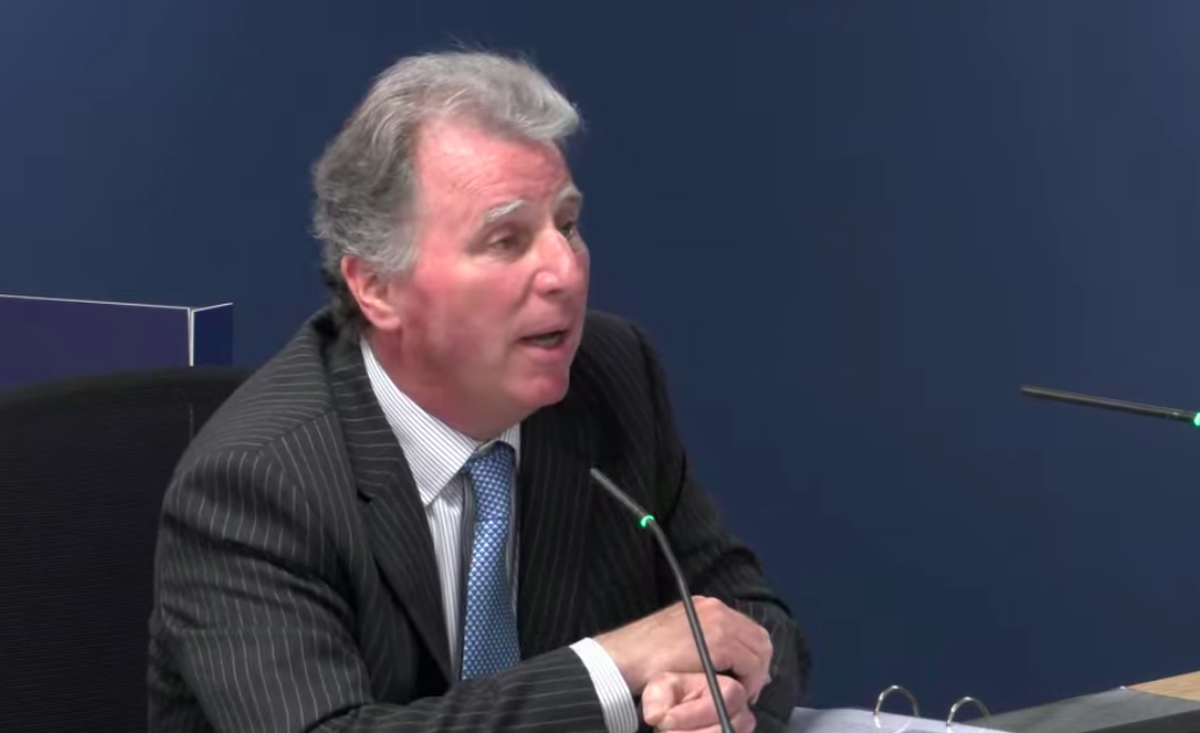
Asked if anyone had ever had this role, he told the UK Covid-19 Inquiry: "There hasn’t as far as I’m aware and I think that is an error.
"I came to that view very gradually but by the end of my time I was pretty convinced that we ought to have, and had I remained in situ, I would’ve tried therefore to move to a model where somebody took that position."
But appointing a junior minister would "achieve nothing", he said, as they must be senior and close to the prime minister.
He expressed regret at following advice to focus on critical national infrastructure, which he described as "wildly under resilient", instead of pandemic flu, which he believed may have allowed him to identify "some other catastrophic pathogen" to prepare for.
"Actually, it is absolutely not an excuse for a minister, alas, because you can always ask the following question, you don’t have to accept the advice," he said.
"That is actually what I should’ve done and it’s a matter of lasting regret that I didn’t."
Sir Oliver also warned that the churn of ministers and officials tasked with preparing for emergencies is a "disaster for the country".
He said there is an "overwhelming case" for training for ministers dealing with civil contingencies.
George Osborne gives evidence - 20 June
George Osborne rejected claims his austerity programme while chancellor depleted the NHS as he suggested his cuts better prepared Britain to tackle the coronavirus pandemic.
The Conservative former MP "completely" disputed the allegations at the official UK Covid-19 Inquiry from medics and unions that his cuts left health and social care in a "parlous state".
Mr Osborne argued on Tuesday that the UK may not have had the financial scope to spend vast amounts to support the public through the crisis without austerity.
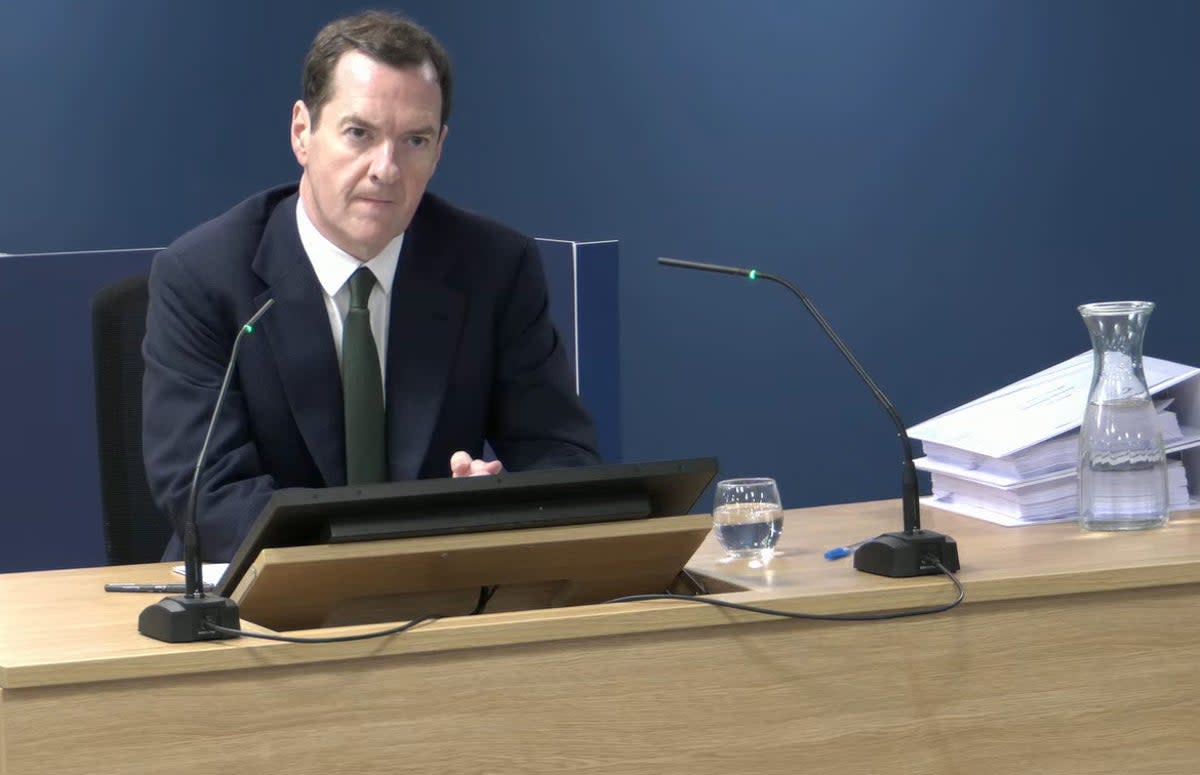
The chancellor between 2010 and 2016 conceded that his Treasury should have planned economic measures such as the furlough scheme needed in the pandemic.
Mr Osborne argued that it was key to ensure that the economy after the "massive economic shock" of the 2008 financial crisis was able to "flex in a crisis".
Inquiry barrister Kate Blackwell KC asked: "Do you agree, by the time Covid-19 hit the consequences of austerity were a depleted health and social care capacity and rising inequality in the UK?"
Mr Osborne replied: "Most certainly not, I completely reject that.
"I would say if we had not done that Britain would have been more exposed, not just to future things like the coronavirus pandemic, but indeed to the fiscal crisis which very rapidly followed in countries across Europe ..."
Jeremy Hunt gives evidence - 21 June
Chancellor Jeremy Hunt has admitted being part of “groupthink” when he was health secretary, leading to a “narrowness of thinking” that failed to expand UK pandemic preparedness beyond planning for a flu outbreak.
The focus on any future pandemic being flu-based meant there was a “shared assumption that herd immunity was inevitably” going to be the strategy used to contain a new virus, he told the UK Covid-19 Inquiry.
He also revealed that he was not briefed about the UK government’s modelling of a non-flu-based epidemic despite it being carried out while he was the cabinet minister responsible for health.
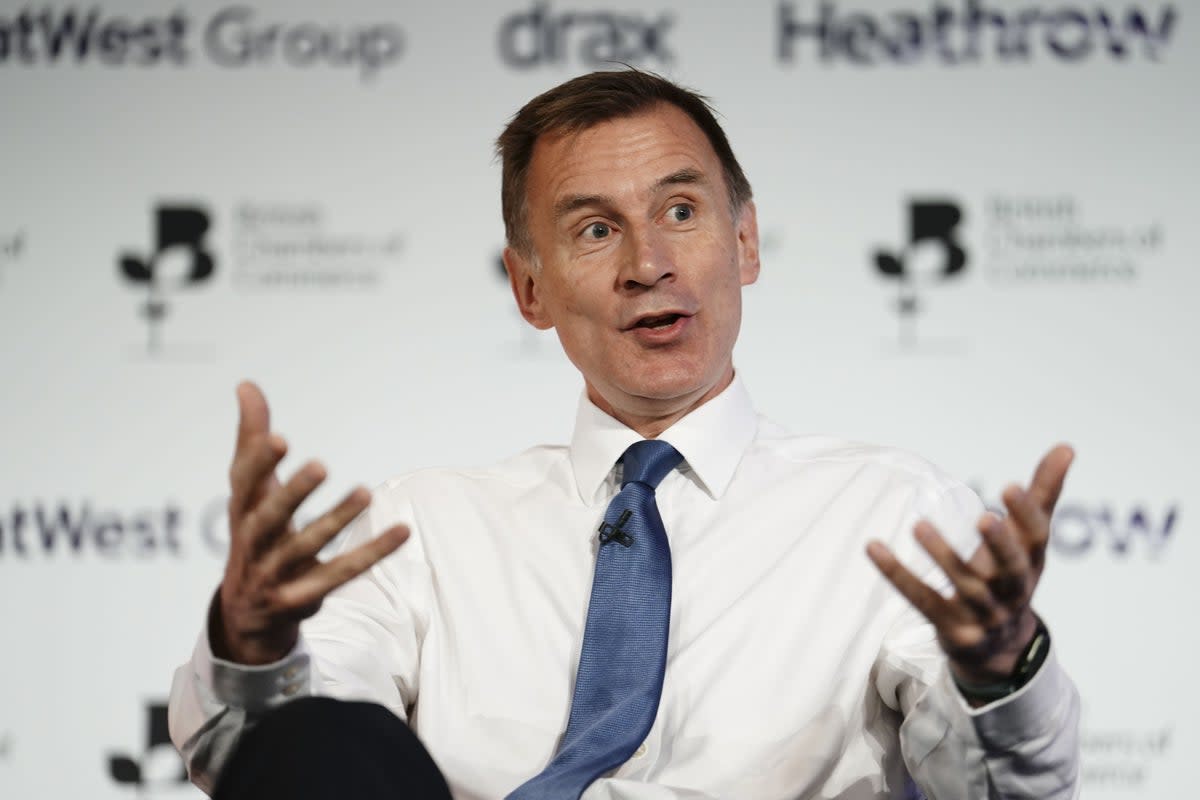
Mr Hunt said it was a “wholly mistaken assumption” for past administrations not to prepare for “other types of pandemic that might emerge”.
The senior Conservative politician, who was health secretary between 2012 and 2018, said exercises to prepare for a future pandemic were full of “groupthink”, which he wished he had “challenged at the time”.
He said studies by the likes of Johns Hopkins University in the US had viewed the UK as being “very good at dealing with pandemics” but said that assumption proved to be “completely wrong”.
“We hadn’t given nearly enough thought to other types of pandemic that might emerge and that was, with the benefit of hindsight, a wholly mistaken assumption,” Mr Hunt told the inquiry’s lead counsel Hugo Keith KC on Wednesday.
Oliver Dowden gives evidence - 22 June
Deputy prime minister Oliver Dowden claimed that planning for a no-deal Brexit made the UK “match fit” for the Covid pandemic.
The senior Tory minister told the Covid inquiry that preparations for crashing out of the EU without a trade deal put the country in a “strong position” to respond to other challenges.
Mr Dowden, Cabinet Office minister from July 2019 to February 2020, said the UK was in a “pretty strong state of preparedness” for any future pandemic – telling the public inquiry he had taken an interest in planning, including for a possible flu pandemic.
Hugo Keith KC, counsel to the inquiry, has previously said that work arising from the threat of a no-deal Brexit under Boris Johnson may have drained “the resources and capacity” that were needed for pandemic planning.
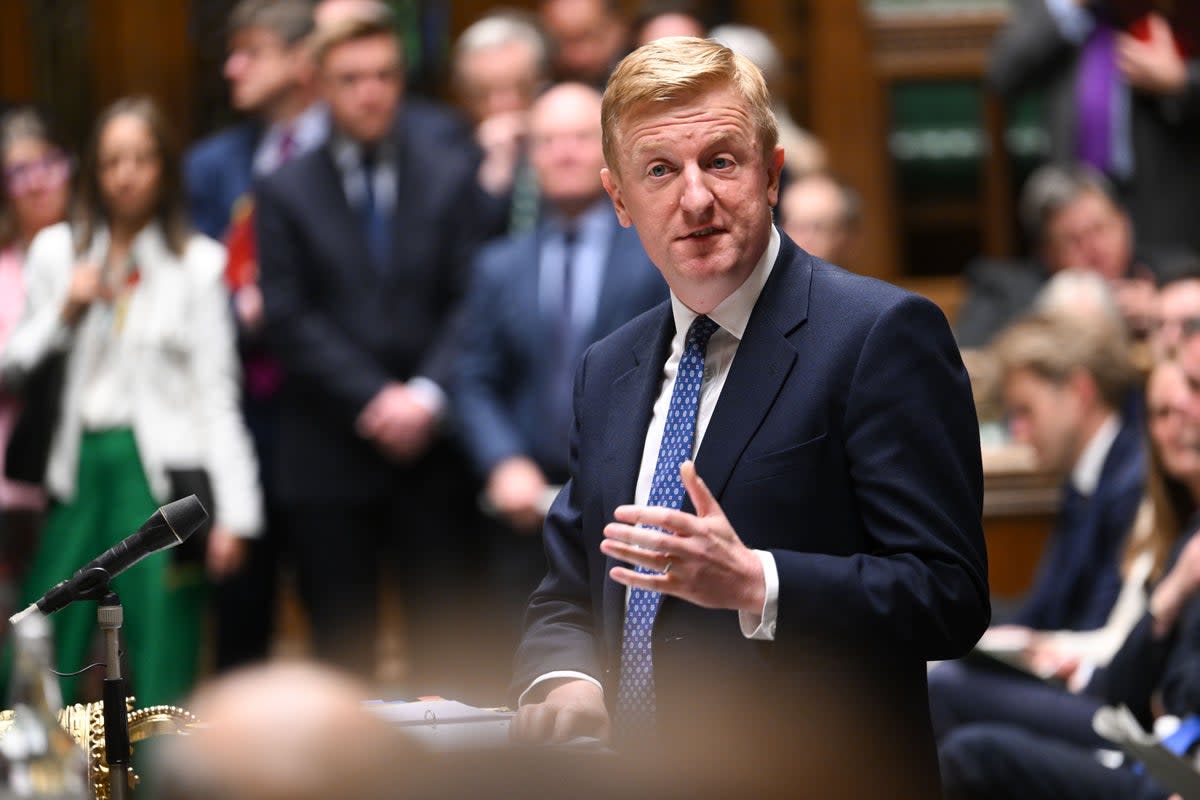
Mr Keith asked Mr Dowden on Wednesday about a 2019 memo about the National Security Council threats programme which suggested that work on pandemic influenza was expected to be affected by the “step-up in planning for a no-deal exit from the EU”.
Mr Dowden said: “It was the case at that time that ‘no deal’ was the default position of the government … this is worth remembering the kind of frankly, apocryphal warnings that were being delivered about the consequences of no-deal Brexit.”
Matt Hancock gives evidence - 28 June
Matt Hancock has admitted that the UK was not properly prepared for the Covid pandemic – claiming officials were more concerned with counting bodybags than preventing the spread of the virus.
Speaking at the Covid inquiry on Tuesday, the former health secretary described the failure to plan as an “absolute tragedy” and repeatedly insisted that the government’s approach had been “completely wrong”.
He conceded that pre-pandemic plans to protect care homes had been “terrible”, saying the care sector was in “nowhere near good enough shape” when Covid struck.
Mr Hancock also revealed that the UK came “within hours” of running out of vital medicines for intensive care units at the height of the pandemic – but said that the planning that had been undertaken in preparation for a no-deal Brexit meant hospitals were able to cope.
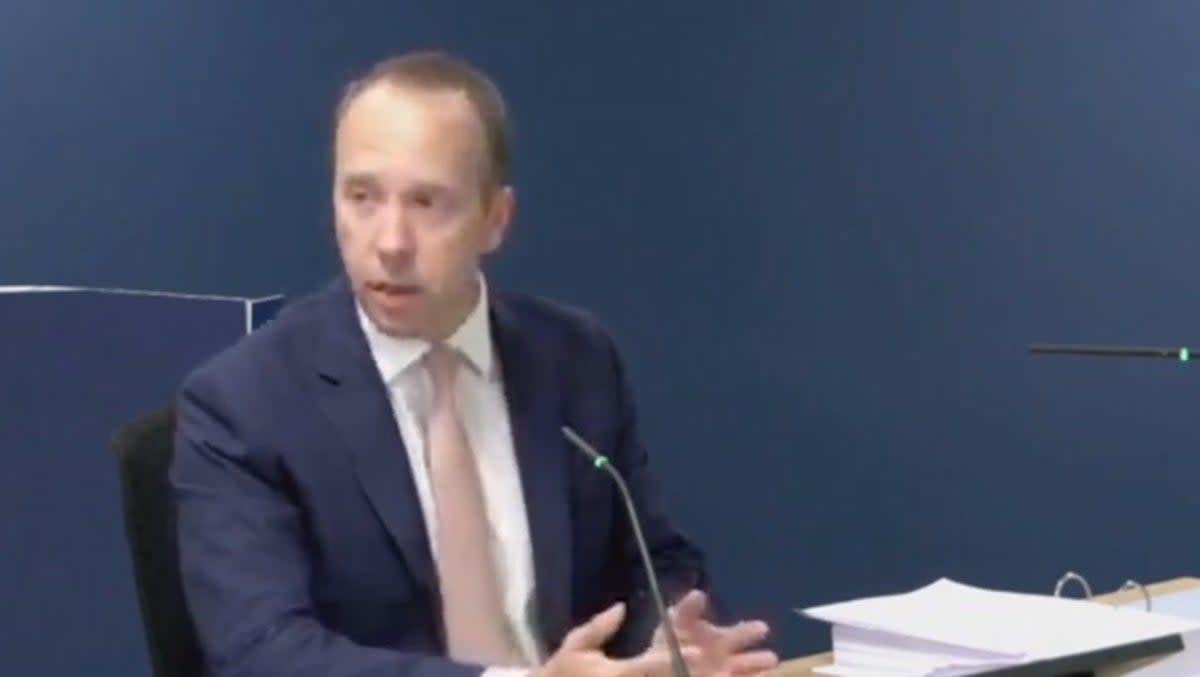
Mr Hancock apologised directly to the families of Covid victims, dramatically turning to address the bereaved in the public seating area. “I’m profoundly sorry for each death,” he told them. “I understand why, for some, it will be hard to take that apology from me – I understand that. I get it. But it is honest and heartfelt.”
Lorelei King, 69, showed Mr Hancock a poster featuring a picture of her husband, Vincent Marzello, who died in a care home in March 2020 at the age of 72, alongside the former health secretary. “You shook my husband’s hand for your photo op,” the poster was captioned.
At the end of the hearing, Mr Hancock approached the public gallery to attempt to apologise in person – but one woman later said she had turned her back on him. Amanda Herring Murrell, who lose her brother Mark to Covid in March 2020, told Sky News: “I wasn’t having any of it.”
Nicola Sturgeon gives evidence - 29 June
Nicola Sturgeon was told off at the Covid inquiry for getting on her “soap box” and criticising the impact of Brexit.
Scotland’s former first minister condemned the threatened Tory no-deal Brexit of 2019, arguing that it damaged the UK’s ability to prepare for health emergencies.
Appearing at the public inquiry on Thursday morning, the ex-SNP leader went on to say: “Every aspect of Brexit has been a false economy.”
Inquiry lawyer Hugo Keith KC rebuked Ms Sturgeon for straying into politics, telling her: “That is a witness box, not a soap box.”
Ms Sturgeon said there had been a need to “divert resources” from emergency planning on potential pandemics because Boris Johnson, then prime minister, had threatened to crash the UK out of the EU without an exit deal.
She said Scottish government ministers “were not at all happy”, but had “no choice” but to switch focus to prepare for the “grim” warnings in the UK government’s Operation Yellowhammer report – including major supply chain disruption.
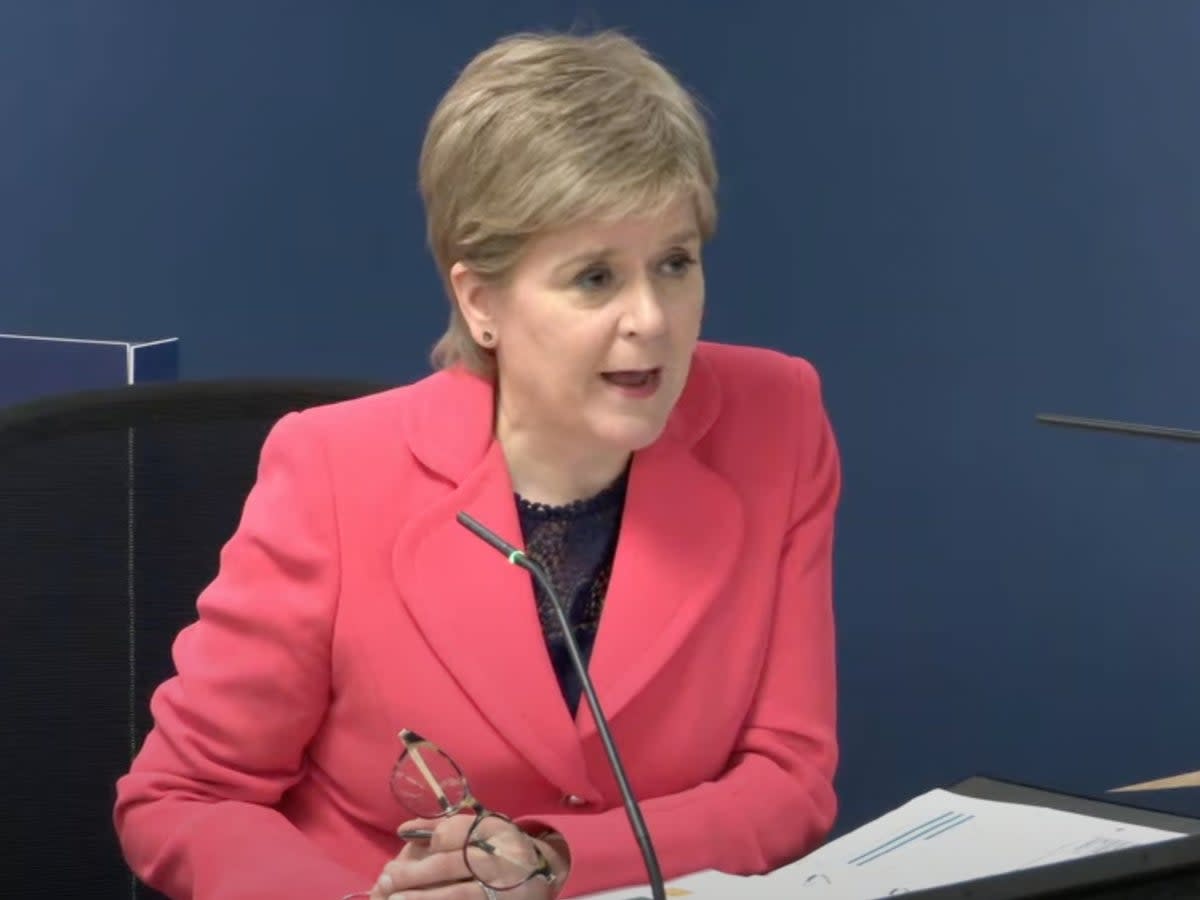
“It was a matter of deep regret and frustration for us at the time,” she said. “We had no choice but to do that planning. I deeply regret any consequences that had for our emergency planning in other areas.”
Questioned if this was a “false economy”, the senior SNP figure said: “I think every aspect of Brexit has been a false economy” – before being chastised by the inquiry lawyer.
Ms Sturgeon, under intense pressure in recent weeks over a police investigation into SNP finances, also told the Covid inquiry that the Scottish government she led during the Covid crisis did not accept the worst-case scenario of the pandemic.
The former first minister said: “It was our determination from the outset to suppress it to the maximum.”
Meanwhile, Ms Sturgeon admitted that Scotland had no specific plan for a non-flu pandemic before Covid struck. The former first minister said there was some “thinking” around high-consequence infectious diseases which were not flu.
She told the Covid inquiry the government she led during the pandemic “did our best... but did not get everything right”.
The former SNP leader added: “The pandemic may be over but for many people their suffering continues and there is not a day that passes that I don’t think about that.”
Evidence from Welsh government - 4 July
The Welsh government has been accused of "locking the stable door after the horse has bolted" in its planning for a future health pandemic.
The UK Covid-19 Inquiry heard the Welsh government had carried out a review earlier this year which found there remained flaws in Wales’ civil contingencies system, including around leadership, training and learning lessons.
Dr Andrew Goodall, the permanent secretary to the Welsh government, said "work was under way" to ensure the identified issues in civil contingency planning were addressed.
But Hugo Keith KC, counsel to the inquiry, suggested to the witness: "Dr Goodall, would you agree that many of those issues have been raised consistently and continuously from 2012 onwards that is an egregious example of locking the stable door after the horse has bolted?"
Dr Goodall replied: "We have had to learn many lessons and adapt, and we need to ensure that we keep addressing the issues from our planning and also from our recent experiences as well."
The inquiry heard some civil contingency planning powers were transferred from Westminster to the devolved Welsh government in 2018, but Dr Goodall said planning for a no-deal Brexit had diverted resources away from that focus.
Dr Goodall, who was chief executive of the NHS in Wales during the Covid-19 pandemic, told the inquiry: "While we had done the sector resilience oversight and we had expanded the team with the new responsibilities coming over, our attention and activity had simply moved across to Operation Yellowhammer and the EU exit arrangements and that meant the resilience team was embedded in that work as well as a very large part of the organisation as well.
"The discharging of those responsibilities as we intended was put on pause even though we were using it and deploying the civil contingency mechanisms for EU exit."
Dr Goodall told the inquiry he agreed a 2011 pandemic strategy had a "number of assumptions" and it resulted in the Welsh government not planning for measures it might have needed to respond to a coronavirus outbreak.
"There were a number of assumptions in there that directed us to not plan for a range of areas and that might have included mass gatherings, non-pharmaceutical interventions," he told the inquiry.
"I do agree that there were a range of areas in which we’re not looking to contain mechanisms and therefore, more focus on those non-pharmaceutical interventions would have genuinely helped in the response."
Mr Keith had put it to him that the 2011 pandemic flu strategy had a "number of flaws".
He went on: "The inability to carry out that review, of course, and inability which existed prior to Wales being struck by the pandemic has been described by one of your own ministers as ‘extremely disappointing’.
"And even after the pandemic struck when the review of civil contingencies in Wales took place in 2023, did it then become apparent that there were still flaws in the civil contingency system, in particular in relation to leadership capacity, effective and continuous training and exercising, a system for the systemic capture of lessons from exercises, the need of an establishment of minimum standards, for competency, skills and qualifications, training and development?"
Dr Goodall replied: "Yes, they remain the themes in those areas and that work is under way to ensure they are resolved.
"There is a system that captures the lessons learnt now which is held at an all-Wales level by Public Health Wales and that is a new introduction since 2017.
"We do need to make sure we embed those arrangements and deal with the actions as well as the culture and behaviour of those issues as well."
